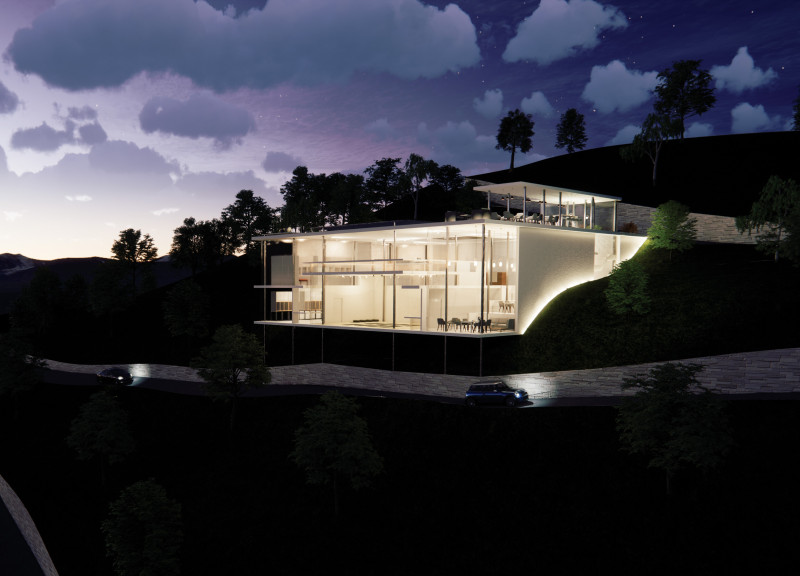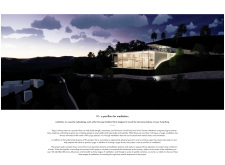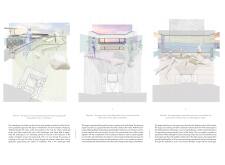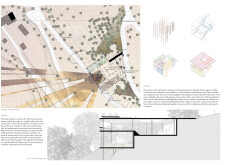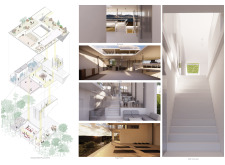5 key facts about this project
The pavilion provides a tranquil space for meditation and yoga practice. Located on a cliff, it overlooks a scenic valley, allowing users to connect with nature. The design is based on principles from yoga, emphasizing interconnectedness and mindfulness. The architecture encourages users to engage with their environment, creating a calming atmosphere that supports contemplation.
Conceptual Framework
The design revolves around the three key stages of meditation: Dharana, Dhyanam, and Samadhi. Each stage informs the layout and movement within the pavilion, offering a structured pathway for visitors. This intentional sequence encourages deeper focus on the surrounding landscape. As users progress through each stage, they transition from a general awareness to a more intimate connection with nature.
Spatial Organization
The roof features a garden that winds through the pavilion, guiding visitors toward the landscape as their focal point. This layout simplifies the experience, helping people enter a meditative state as they make their way to their destination. Each step along the path is part of a reflective process, emphasizing the journey toward mindfulness and awareness.
Integration of Nature
The entrance connects the outdoors with the interior space gradually. This design choice allows users to mentally adjust before they enter areas meant for meditation. Architectural features frame views of the landscape, reinforcing the connection between the building and its natural surroundings. This transition enhances the overall experience, inviting users to engage fully with their environment.
Material Selection
Round-cornered glass is used throughout the pavilion, particularly in the yoga room on the lower level. This choice allows for clear views of the outdoor landscape while letting in natural light. By minimizing structural interruptions, the design supports a feeling of openness. The materials contribute to a calm and inviting atmosphere, essential for meditation and mindfulness practices.


